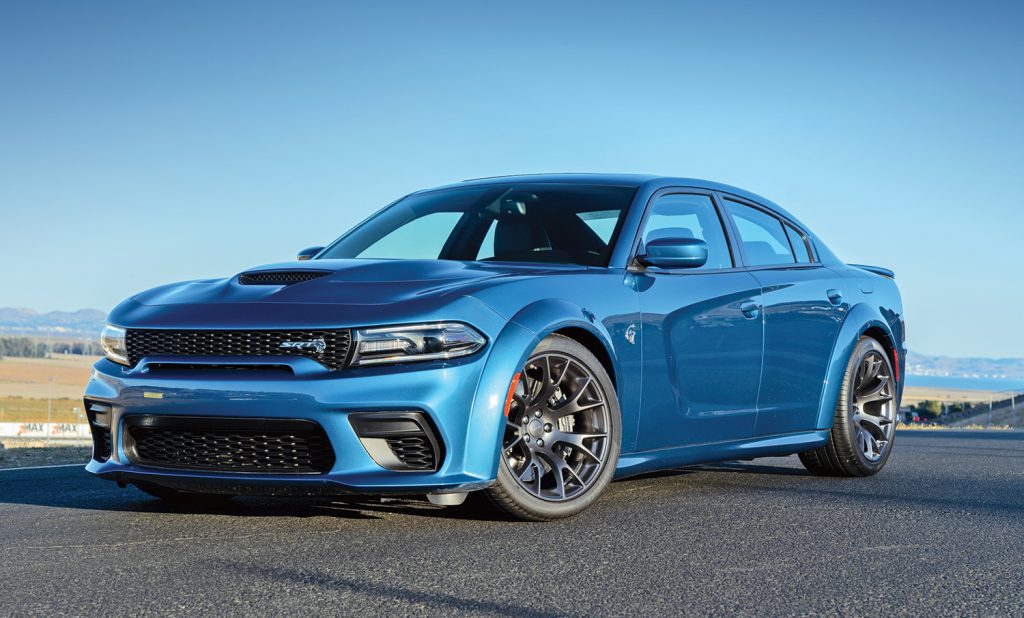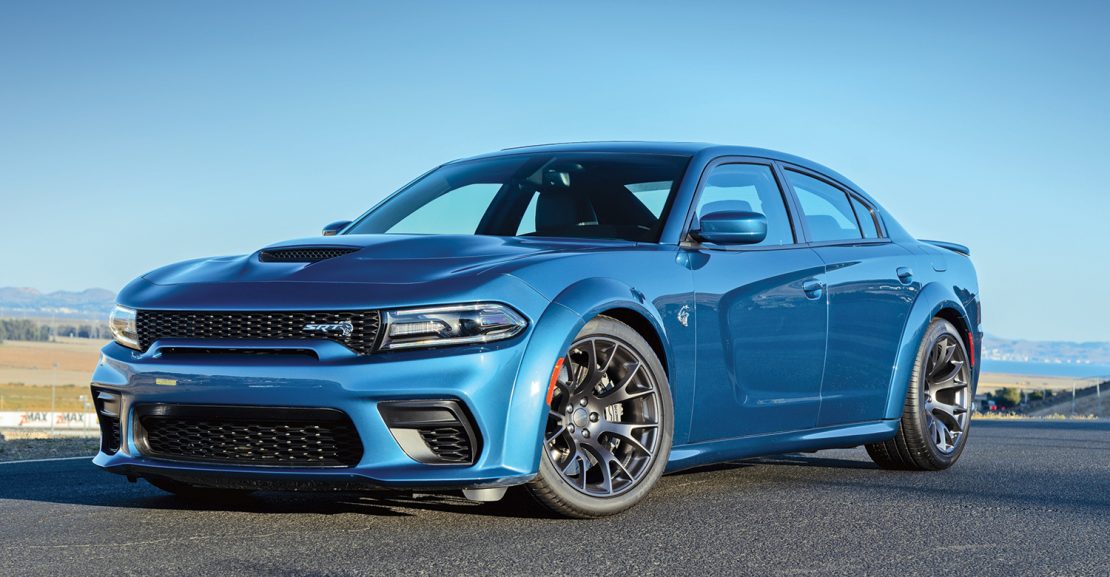
Note: The following story was excerpted from the October 2020 issue of Collectible Automobile magazine.
 Nearly five years ago we took our first look at the Dodge Charger Hellcat. Now for 2020, Dodge has tweaked the car into the new “Widebody” variant. It’s different enough that we think it’s time for a Future Collectibles second look.
Nearly five years ago we took our first look at the Dodge Charger Hellcat. Now for 2020, Dodge has tweaked the car into the new “Widebody” variant. It’s different enough that we think it’s time for a Future Collectibles second look.
2020 Dodge Charger SRT Hellcat Widebody
More muscle-car news, reviews and fun
2020 Dodge Charger SRT Hellcat Widebody
The most obvious changes are to Charger’s four-door-sedan body, where add-on front and rear fender flares increase the car’s width by 3.5 inches. The flares integrate with new front and rear fascias and side sills. Up front there is a new grille, and out back a model-specific spoiler. The flares help create a vaguely retro road-racer look and visually lower the car.
More practically, the flares made room for bigger rolling stock, so the engineers specified 11-inch-wide alloys and 305/35ZR20 Pirellis. You may recall the 2015 Charger Hellcat ran nine-inch-wide rims clad in already generous 275/40ZR20 rubber.
Widebody also benefits from revised underpinnings including an SRT-tuned adaptive “competition” suspension with three modes. There also are stiffer front springs, beefed-up sway bars, retuned shocks, and a power-steering system with driver-selectable settings.
The brakes are upgraded as well. Up front are 15.4-inch-diameter two-piece Brembo rotors squeezed by six-piston calipers, and the rear binders use four pistons apiece. Dodge claims the 60-0- mph braking in 107 feet, an improvement of four feet. Hellcat’s 707-hp supercharged 6.2-liter Hemi V-8 and eight-speed automatic are carried over.
Dodge supplied performance numbers of 0-60 mph in 3.6 seconds, a quarter-mile dash of 10.96 seconds, and a top speed of 196 mph. The car is said to run a 2.1-mile road course 2.1 seconds quicker than the 2019 Charger Hellcat—which Dodge asserted was equal to a 13-car-length advantage after one lap.
Dodge also celebrates the unforgettable 1969 Charger Daytona, with the 2020 Charger SRT Hellcat Widebody Daytona 50th Anniversary Edition. We aren’t sure why the 50th Anniversary Daytona arrived 51 years after the original, but we are very confident that this car was given an extremely long name!
The Daytona special is limited to 501 units, like the ’69 original. Its engine is modestly retuned for 717 horsepower and 650 pound-feet of torque. Daytona-unique details include the trunklid, rear spoiler, and rear quarter-panel decals that together very loosely recall the mile-high wing on the NASCAR-approved ’69. Daytona buyers can choose from four colors, including throwback B5 Blue not offered on other 2020 Chargers. Inside, the black interior receives blue accent stitching, embroidered Daytona callouts, and an individually numbered badge on the dash.
Pricing for the Hellcat Widebody starts at $69,645, with the Daytona edition coming in at $74,140. The destination charge adds a hefty $1495.
Future Collectibles: 2020 Chevrolet Corvette
Pros:
- Widebody’s add-on flares and huge tires make the still-handsome Charger look lower and even more muscular.
- Impressive performance in a large and practical four-door sedan.
Cons:
- The Charger Scat Pack Widebody looks nearly identical, packs an anything-but-mild 485-horse 392-cid Hemi, and takes just 0.7 seconds longer to go 0-60 mph. Perhaps most significantly it’s more than $23,000 cheaper than the Hellcat.
- Can’t believe we’re saying this, but 707 horsepower isn’t as shocking as it was five years ago.
Final Drive:
If you thought Dodge had already turned the Charger up to 11 with the Hellcat, the 2020 Widebody bumps it up another notch or two. We think the best choice here is the “base” version. The Daytona doesn’t really capture our imagination, especially considering the near $4500 premium.
Subscribe to Collectible Automobile
Follow Collectible Automobile on Twitter
2020 Dodge Charger SRT Hellcat Widebody



